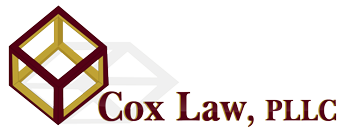(a) For Claimant. A party seeking to recover upon a claim, counterclaim, crossclaim, or third-party claim or to obtain a declaratory judgment may move for a summary judgment in that party’s favor upon all or any part thereof with or without supporting affidavits at any time after the expiration of 20 days from the commencement of the action or after service of a motion for summary judgment by the adverse party.
(b) For Defending Party. A party against whom a claim, counterclaim, crossclaim, or third-party claim is asserted or a declaratory judgment is sought may move for a summary judgment in that party’s favor as to all or any part thereof at any time with or without supporting affidavits.
(c) Motion and Proceedings Thereon. The motion shall state with particularity the grounds upon which it is based and the substantial matters of law to be argued and shall specifically identify any affidavits, answers to interrogatories, admissions, depositions, and other materials as would be admissible in evidence (“summary judgment evidence”) on which the movant relies. The movant shall serve the motion at least 20 days before the time fixed for the hearing, and shall also serve at that time a copy of any summary judgment evidence on which the movant relies that has not already been filed with the court. The adverse party shall identify, by notice served pursuant to rule 1.080 at least 5 days prior to the day of the hearing, or delivered no later than 5:00 p.m. 2 business days prior to the day of the hearing, any summary judgment evidence on which the adverse party relies. To the extent that summary judgment evidence has not already been filed with the court, the adverse party shall serve a copy on the movant pursuant to rule 1.080 at least 5 days prior to the day of the hearing, or by delivery to the movant’s attorney no later than 5:00 p.m. 2 business days prior to the day of hearing. The judgment sought shall be rendered forthwith if the pleadings and summary judgment evidence on file show that there is no genuine issue as to any material fact and that the moving party is entitled to a judgment as a matter of law. A summary judgment, interlocutory in character, may be rendered on the issue of liability alone although there is a genuine issue as to the amount of damages.
(d) Case Not Fully Adjudicated on Motion. On motion under this rule if judgment is not rendered upon the whole case or for all the relief asked and a trial or the taking of testimony and a final hearing is necessary, the court at the hearing of the motion, by examining the pleadings and the evidence before it and by interrogating counsel, shall ascertain, if practicable, what material facts exist without substantial controversy and what material facts are actually and in good faith controverted. It shall thereupon make an order specifying the facts that appear without substantial controversy, including the extent to which the amount of damages or other relief is not in controversy, and directing such further proceedings in the action as are just. On the trial or final hearing of the action the facts so specified shall be deemed established, and the trial or final hearing shall be conducted accordingly.
(e) Form of Affidavits; Further Testimony. Supporting and opposing affidavits shall be made on personal knowledge, shall set forth such facts as would be admissible in evidence, and shall show affirmatively that the affiant is competent to testify to the matters stated therein. Sworn or certified copies of all papers or parts thereof referred to in an affidavit shall be attached thereto or served therewith. The court may permit affidavits to be supplemented or opposed by depositions, answers to interrogatories, or by further affidavits.
(f) When Affidavits Are Unavailable. If it appears from the affidavits of a party opposing the motion that the party cannot for reasons stated present by affidavit facts essential to justify opposition, the court may refuse the application for judgment or may order a continuance to permit affidavits to be obtained or depositions to be taken or discovery to be had or may make such other order as is just.
(g) Affidavits Made in Bad Faith. If it appears to the satisfaction of the court at any time that any of the affidavits presented pursuant to this rule are presented in bad faith or solely for the purpose of delay, the court shall forthwith order the party employing them to pay to the other party the amount of the reasonable expenses which the filing of the affidavits caused the other party to incur, including reasonable attorneys’ fees, and any offending party or attorney may be adjudged guilty of contempt.
Committee Notes
1976 Amendment. Subdivision (c) has been amended to require a movant to state with particularity the grounds and legal authority which the movant will rely upon in seeking summary judgment. This amendment will eliminate surprise and bring the summary judgment rule into conformity with the identical provision in rule 1.140(b) with respect to motions to dismiss.
1992 Amendment. The amendment to subdivision (c) will require timely service of opposing affidavits, whether by mail or by delivery, prior to the day of the hearing on a motion for summary judgment.
2005 Amendment. Subdivision (c) has been amended to ensure that the moving party and the adverse party are each given advance notice of and, where appropriate, copies of the evidentiary material on which the other party relies in connection with a summary judgment motion.
2012 Amendment. Subdivision (c) is amended to reflect the relocation of the service rule from rule 1.080 to Fla. R. Jud. Admin. 2.516.
Click Here to read more or browse blog articles related FRCP Rule 1.510

